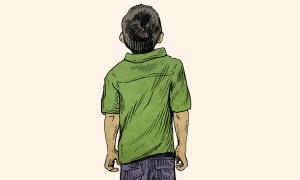author
5,316 Results
author
author
author
author
author
article
lesson
Discrimination in Banned Books
The last week of September is Banned Books Week. Many teachers use the event to talk about free speech with their students. I also use it to begin a conversation about discrimination.
August 24, 2009
article
Pushed Out

Zero tolerance policies were supposed to end school violence. Instead, they’re pushing students out of school and into the justice system — and children of color are paying the highest price.
article
Inclusion on the Bookshelf

In fiction, children with disabilities are often still segregated, labeled, lonely and lost. These titles will help bring your school’s library into the age of inclusion.